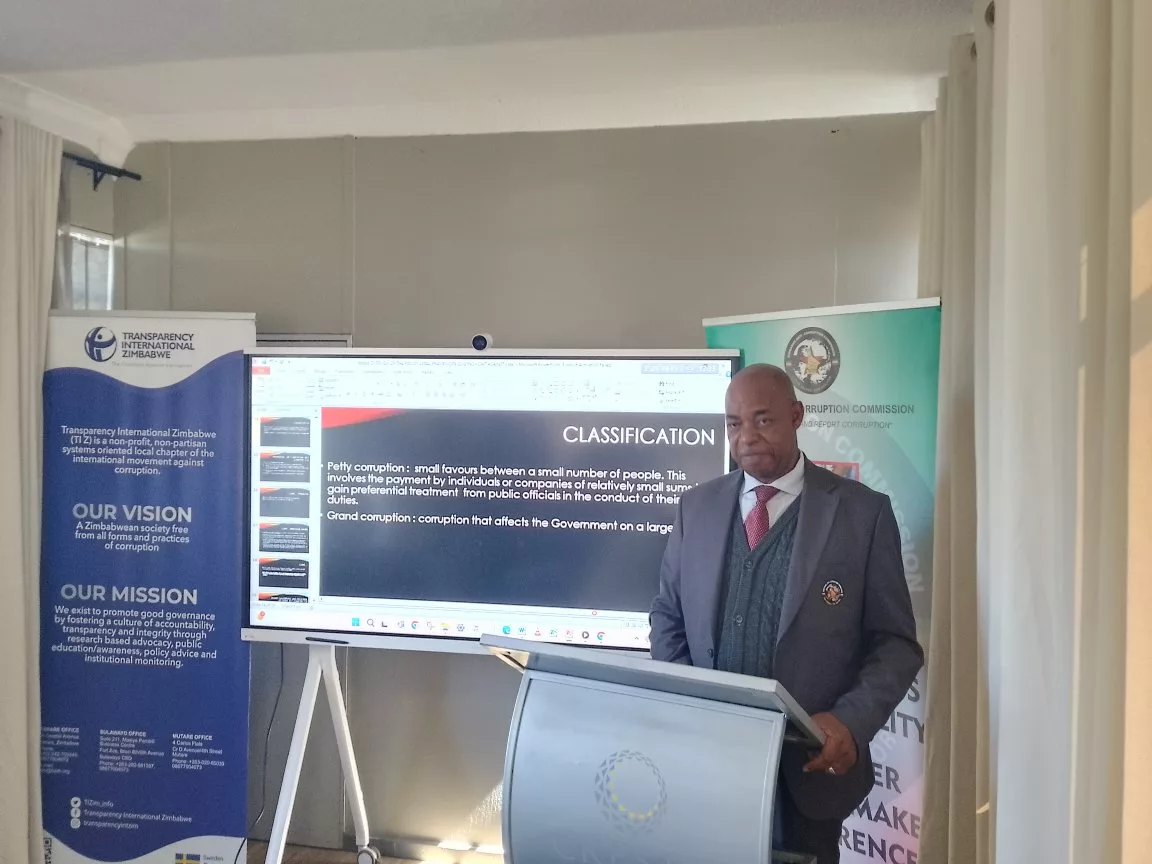|
Getting your Trinity Audio player ready...
|
The Zimbabwe Anti-Corruption Commission (ZACC) has underscored the critical role played by the media, which has been described as one of the key stakeholders, in the fight against corruption.
This came to the fore in opening remarks by Commissioner Kuziva Murapa, the ZACC Deputy Chairperson, at the two-day anti-corruption media reporting workshop that kicked off on 12 June 2024 in Harare.
The Zimbabwe Anti-Corruption Commission is mandated by the Constitution of Zimbabwe to combat all forms of corruption – acknowledging that it is an onerous responsibility that requires multi-stakeholder collaboration. This is the third Anti-Corruption Reporting Media workshop by the Commission after Mutare and Bulawayo.
“We appreciate that media plurality and diversity is the cornerstone of the fight against corruption as it helps disseminate the message to hitherto forgotten audiences. I would like to take this opportunity to thank the media fraternity for the continued support that you render to the Zimbabwe Anti-Corruption Commission.
“Esteemed members of the media, I would like to believe that we are all aware of the ZACC ANTI-CORRUPTION MEDIA AWARDS which were launched in 2023 in recognition of the role played by the media in the fight against corruption. This demonstrates the Commission’s appreciation of the centrality of the media in pushing the Government of Zimbabwe’s ZERO TOLERANCE TO CORRUPTION mantra as espoused in the National Blueprint, the National Development Strategy 1, and the National Anti-Corruption Strategy,” Commissioner Murapa said.
The role of the media is appreciated in the National Development Strategy (NDS1) which notes that “an informed and knowledgeable society is a pre-requisite for creating a shared national vision and collective sense of national identity.”
He said it was in that spirit that the Commission took an initiative to strengthen the relations by providing a platform for knowledge sharing so that journalism’s contribution to the fight against corruption is bolstered.
“Our vision is for “a citizenry and institutions that uphold integrity and good governance for a corruption-free Zimbabwe by 2030.” The anti-corruption reporting media workshop is designed to stimulate journalists and develop their capacities and skills to investigate and report on corruption which is hampering socio-economic development and militating against the national vision espoused in the National Development Strategy (NDS1). The programme assumes that corruption and development stagnation are systematically interrelated, and seeks to encourage journalists to approach investigating and reporting corruption in a correspondingly systematic manner,” Commissioner Murapa added.
Mr. Tafadzwa Chikumbu, the Executive Director of Transparency International Zimbabwe, said as a civil society organization, they are working to combat corruption in the country, but at the same time, instilling a culture of integrity within citizens.






